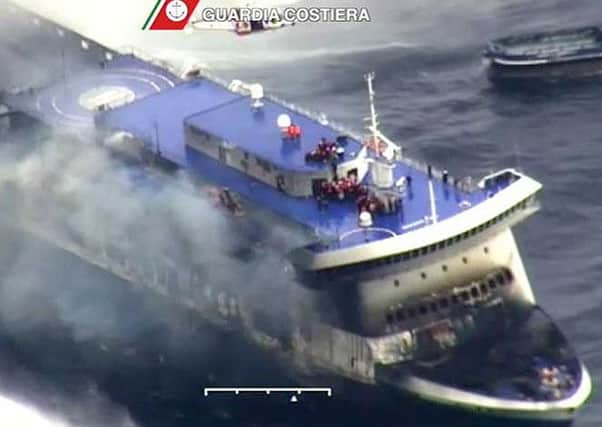Hopes firefighters will continue to assist vessels on fire


Humberside Fire and Rescue Service (HFRS) had warned they may have to stop attending fires outside the Humber at the end of the year after search and rescue helicopter service Bristow was stopped from carrying out “live” winch training with firefighters.
The service has a statutory duty to attend vessels on fire in the Humber, but not outside, despite the large volumes of shipping.
Advertisement
Hide AdAdvertisement
Hide AdIn January a team from HFRS - who are volunteers - were winched on board a cargo vessel off the Norfolk coast, to tackle a serious fire in the accommodation block. No one was injured.
Deputy chief fire officer Chris Blacksell said: “We are hopeful that flying training will get reinstated again. If it doesn’t we would have to cease our response to fires at sea. There have been positive discussions with the Home Office, so we are hopeful.”
It comes as maritime professionals’ union Nautilus International urged the government to reverse cuts to at-sea firefighting services after new research revealed ship fires are the biggest threat to safety in European waters.
A study by the Finnish Transport Safety Agency shows almost 800 ship fires occurred in European waters between 2004 and 2014 - 10 per cent of which were “serious”. The largest percentage were on cargo ships, with around a quarter on cruiseships and passenger ferries. Six per cent of fires on passenger vessels result in fatalities or serious injury every year.
Advertisement
Hide AdAdvertisement
Hide AdThe Government withdrew funding for the national Maritime Incident Response Group in 2011 claiming demand was too low to justify the cost. General secretary Mark Dickinson said: “At a time when crewing levels have been reduced significantly, it is essential seafarers are given the back-up and support of properly trained specialist teams to handle the huge challenges that can arise in emergency situations.”